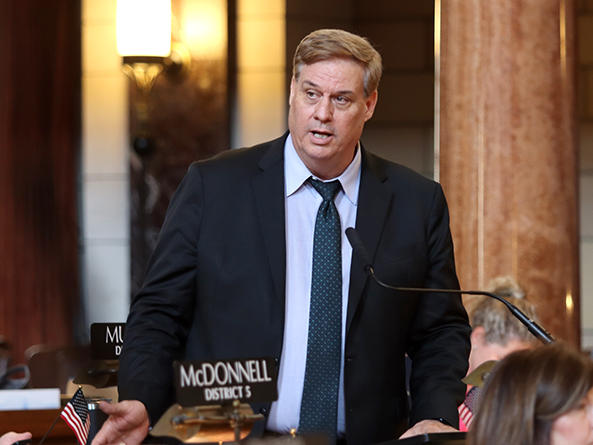Session Review: Nebraska Retirement Systems
Lawmakers approved a bill this year that makes changes to the various retirement systems administered by the state.
LB103, introduced by Omaha Sen. Mike McDonnell, makes technical changes to a bill passed in 2022 that codified retirement practices and rules for certified teachers covered by the State Code Agency Teachers Association contract who previously or subsequently are employed by a school district, educational service unit or any other state agency.
The measure includes provisions of three additional bills sponsored by McDonnell.
LB104 changes the state, county, judges, school and state patrol retirement plans by raising the age from 72 to 73 for required minimum distributions in order to align with recently passed federal legislation. The RMD age will increase to 75 beginning in 2033.
LB105 changes various retirement plans to align with federal legislation that changed the definition of military service to include preparations for military service, rest and recovery after military service and state active service.
Under provisions of LB160, the supplemental retirement benefit rate for counties that participate in the County Employees Retirement Plan increases from 1 to 2 percent of compensation in counties with a population of 85,000 or less. The rate in counties with a population greater than 85,000 increases from 2 to 3 percent.
The change applies to all Nebraska counties except Douglas and Lancaster, which do not participate in the county plan.
The measure passed on a vote of 41-0 and took effect immediately.
A bill that would alter what is included in the term “salary” related to retirement plans for firefighters in first class cities in Nebraska also was considered this session.
State law classifies cities based on population. First class cities are those with a population between 5,001 and 100,000.
LB221, sponsored by Sumner Sen. Teresa Ibach, would align the definition of salary for firefighters and police in first class cities as all amounts paid by the employing city for personal services. Currently, salary for those firefighters is defined as the base rate of pay, excluding overtime, callback pay, clothing allowances and other such benefits.
The bill remains in committee.


